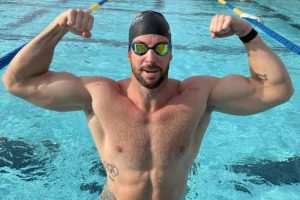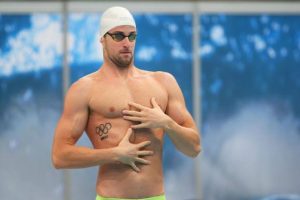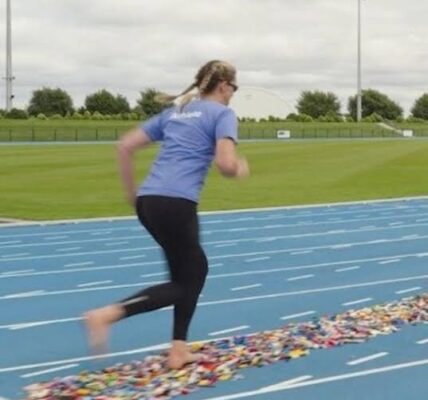Skip to content
Enhanced Games: Doped swimmer claims 50m freestyle ‘world record’.

“The Enhanced Games gave me the resources and the team to unlock a new level of performance – and now the whole world can see what’s possible,” said Gkolomeev, whose previous 50m freestyle best was 21.44, winning silver behind Britain’s Ben Proud at the European Championships in Edinburgh in 2018.
He added that his body shape changed considerably between doping for two weeks in advance of beating Cielo’s record in Feburary and then going quicker than Dressel in textile shorts in April.

“On the second attempt I was on a full two-month cycle,” he added.
“I had an extra 10lbs of lean muscle – we did a pretty good job with my coach in that short amount of time to get used by my new strength and weight in the water.
It was a very good result.”
The Enhanced Games did not reveal what substances he had taken, citing personal confidentiality and concern that others would follow Gkolomeev’s regime unsupervised.
It said they were prescribed “medically and legally”.
Organisers say they allow participants to take only “medically prescribable and legally approved” substances under clinical supervision, and that they are confident they will comply with the Drug Enforcement Administration laws in the US.

Ukraine’s Andrii Govorov, the 33-year-old 50m butterfly world record holder, and 21-year-old Bulgarian Josif Miladinov, a European 100m butterfly silver medallist, have also signed up.
Govorov announced his retirement from Olympic sport this week.
and the World Anti-Doping Agency described it as a “dangerous and irresponsible project”.
Speaking in November, Brent J Nowicki, the executive director of World Aquatics, said it was “a farce, and an extremely dangerous one”
, adding that those who took part should be banned from sport for life.
Jane Rumble, chief executive of UK Anti-Doping (Ukad), told BBC Sport: “We are really, really concerned by this concept.
“It flies in the face of everything Ukad stands for and it flies in the face of fair play.
“Any sporting event which permits performance-enhancing drugs is ultimately unsafe – unhealthy for athletes. It is not good for their wellbeing.
“There are also much broader societal implications.
It is well documented that steroid use has been linked to domestic violence and aggression in the nighttime economy.”
A Ukad survey
published this week said 85% of UK teenagers supported banning athletes caught taking prohibited drugs.
Rumble said Ukad is unaware of any British athletes being approached by the Enhanced Games, but is planning for the possibility.
“We have clearly thought through that scenario,” she said.
“There is the possibility of bans from sport for athletes taking part.
If you are recently retired but still affiliated to a sports body, we could well be looking at taking action.”
Jim McVeigh, professor of substance use and associated behaviours at Manchester Metropolitan University, said organisers’ assurances about athletes’ safety were “ignorant or deliberately misleading”.
“They are focusing on the power sports – sprinting, lifting and swimming – and, for those events, athletes will take anabolic agents,” he told BBC Sport.
“Athletes won’t use just in the weeks before. If it is $1m, those people are going to be training now.
Are organisers looking out for them? Have they started their supervision?
“In the last 10 years we have really improved our understanding of the long-term effects of steroid abuse as a population of steroid users who started in 1990s have got to a certain age.
“There are the effects on the cardiovascular system, but the big turn-up has been the impact it has on the brain.
Many people will never return to normal hormonal production and function.
“We know people in the Enhanced Games are going to be taking high doses because they know everyone else is free to.”
Enhanced Games officials say that by bringing the use of performance-enhancing drugs into the open and under the guidance of doctors, their event will be safer than conventional sport.
They point to a study
of the 2011 World Athletics Championships where athletes’ responses to an anonymised survey suggested almost 44% had taken a banned substance in the previous year.






